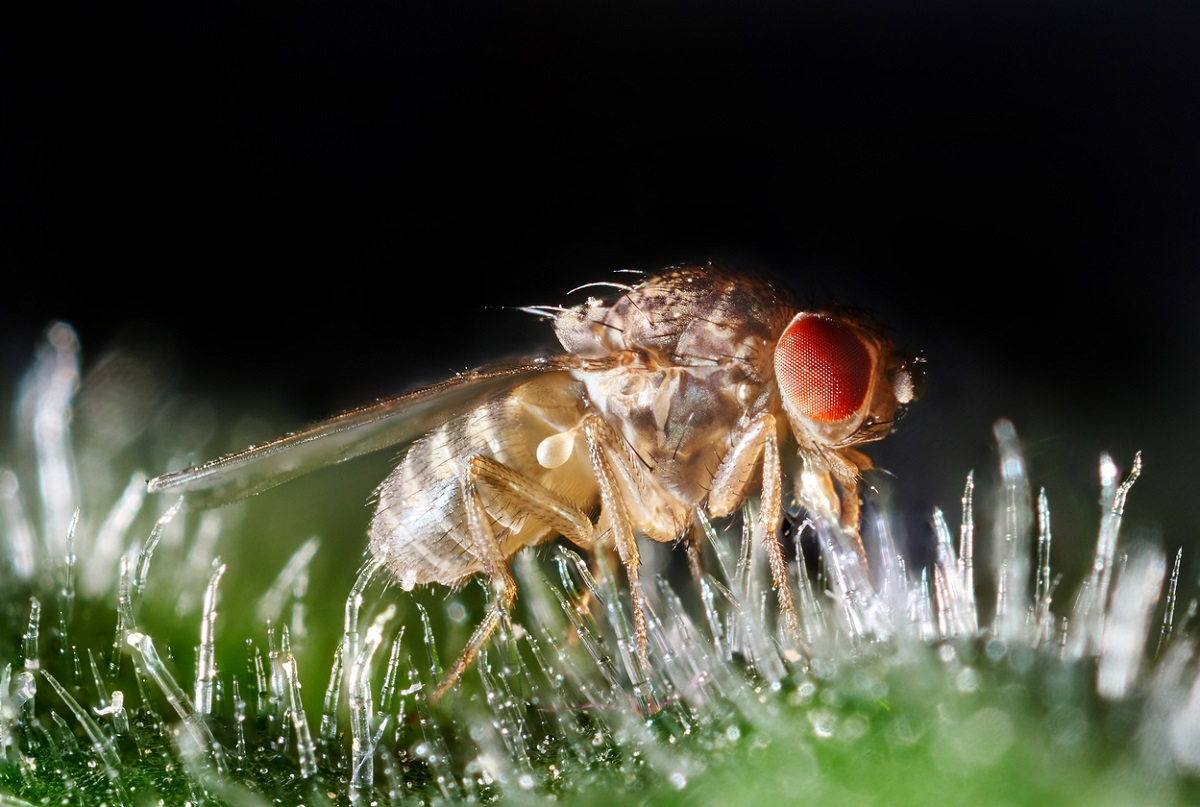
Scientists Control Fruit Fly Population Using CRISPR
May 5, 2021| |
More males than females of the Mediterranean fruit fly were produced after the scientists conducted endogenous CRISPR activities during spermatogenesis on the insect.
The study was conducted by the Imperial College London and the Hebrew University of Jerusalem. They focused on the Mediterranean fruit fly or medfly (Ceratitis capitata), a worldwide agricultural pest that causes up to U.S.$ 298 million worth of crop damage. By using endogenous CRISPR-Cas9 and CRISPR-Cas12 during spermatogenesis, the scientists were able to conduct sex ratio distorter system to influence the reproductive sex ratio of the medfly population. They used a DNA-cutting enzyme to destroy the X chromosome during sperm production that resulted in a medfly population that was 80% males. This can result in having fewer medflies with fewer mating opportunities, as well as having fewer female medflies who will deposit their eggs into crops' fruits that eventually cause crop damage and economic loss to farmers.
This is also the first time that a sex-distorting modification was done to a non-model organism or an organism that has not been extensively studied or used in many experiments. Genomes of non-model organisms are generally less well known. The results of the experiment suggest that the modification can be done in a wide range of agricultural pest species and human disease insect vectors. The scientists intend to improve their modification methodology and further optimize it to ensure that any eventual use will not have unintended effects and that the end product will be safe for release.
Read the full paper in BMC Biology and the news release from the Imperial College London.
| |
You might also like:
- Researchers Develop First Gene Drive Targeting World's Invasive Crop Pest
- Scientists Prove CRISPR's Potential As Control for Queensland Fruit Fly
- Scientists Sequence Complete Fruit Fly Genome
Biotech Updates is a weekly newsletter of ISAAA, a not-for-profit organization. It is distributed for free to over 22,000 subscribers worldwide to inform them about the key developments in biosciences, especially in biotechnology. Your support will help us in our mission to feed the world with knowledge. You can help by donating as little as $10.
-
See more articles:
-
News from Around the World
- UN Agencies Conduct Virtual Consultations to Strategize Hunger Alleviation and Food System Transformation
- Oklahoma State University Scientists Wheat Gene Discovery to Increase Yields
- Study Shows First High-Quality Reference Genome of Hazelnut
- Nanonutrients Protect Crops from Fungal Diseases
- Transgenic Crop Industry in Iran Remains Steady Despite Challenges, Study Finds
- European Commission Study Shows Potential for Agriculture of New Genomic Techniques and Need for New Policy
- Research Confirms GM Grass Cleanses Soil of Toxic Pollutants Left by Military Explosives
-
Research Highlights
- Mutant Maize Gene Gives Clues on Breeding Better Crops
-
Plant
- Scientists Control Fruit Fly Population Using CRISPR
- Research Reveals GORKY Protein Turns Bitter Tomatoes Sweet
- Harvard University Researchers Create New Gene Editing Tool Retron Library Recombineering
- Researchers Explore Off-target Effects of TALEN-mediated Bar-knockout in Rice
-
Read the latest: - Biotech Updates (January 14, 2026)
- Gene Editing Supplement (December 17, 2025)
- Gene Drive Supplement (February 22, 2023)
-
Subscribe to BU: - Share
- Tweet

